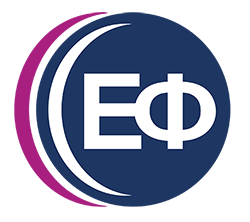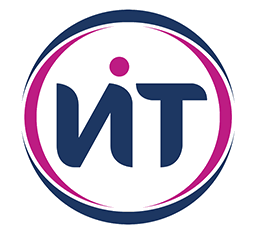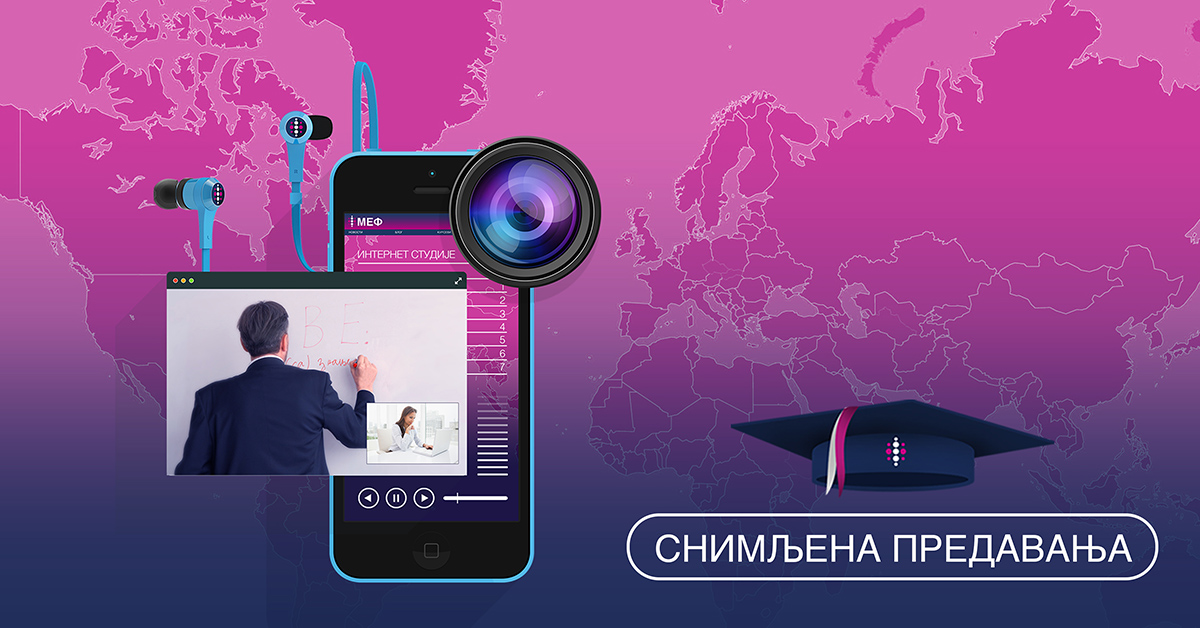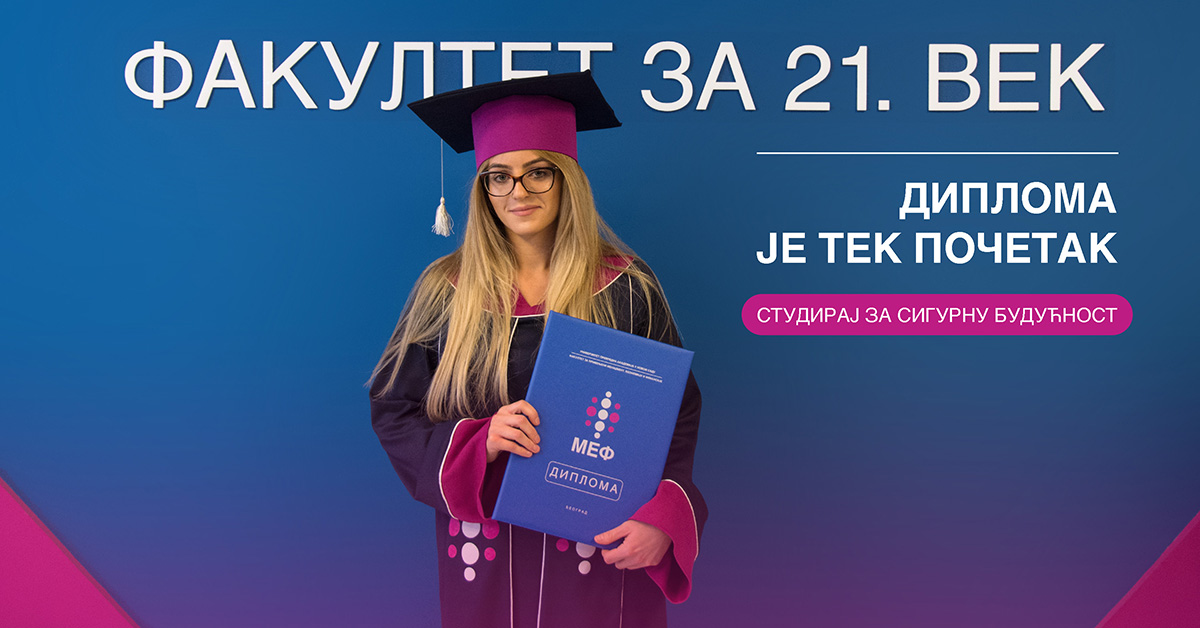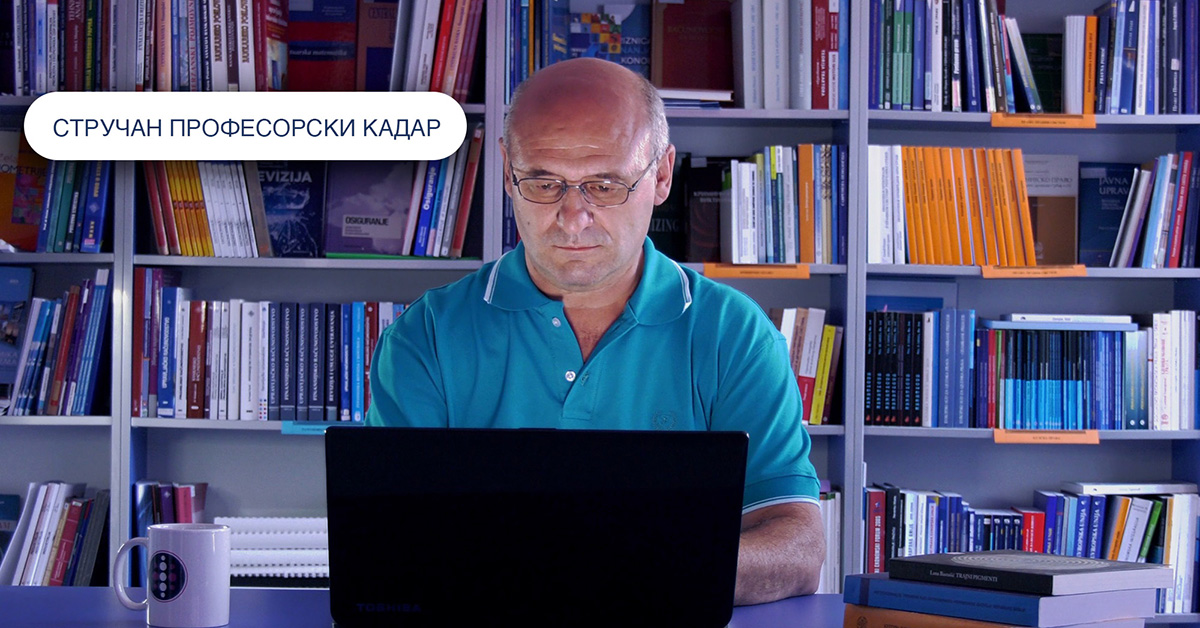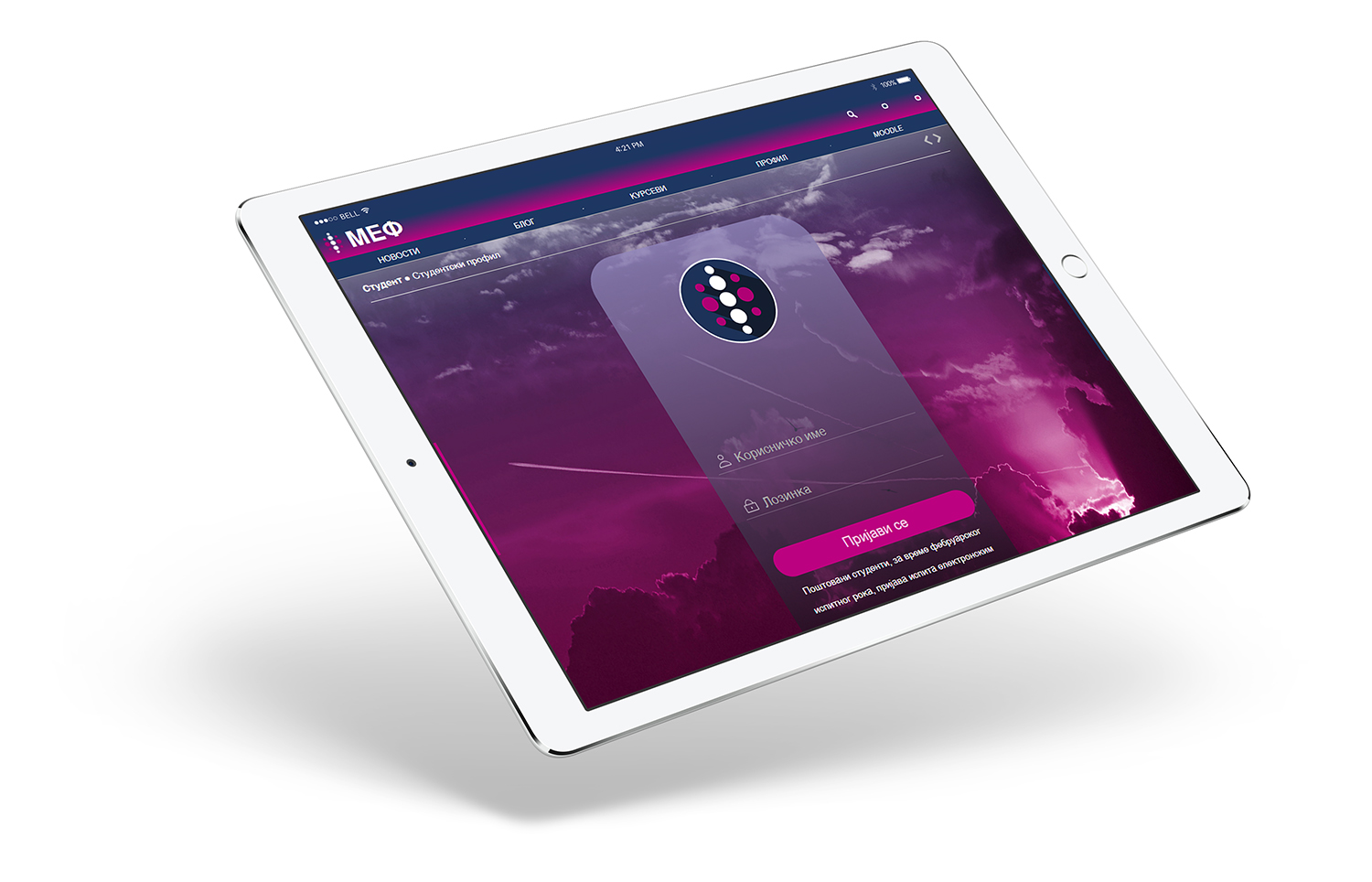Master study program of Information technology lasts one year. Upon completion of Master Academic Studies, the student acquires the title. Master Information Technology Engineer. At the study program Informational Technologies, the student defines one module:
- Internet Technology
- Digital Marketing
MEF faculty is fundamentally committed to academic development and stimulation of scientific research work, as a safe basis for the development of business personality. Highly qualified professors with rich practical experience as well as constant self-improvement in the professional field guarantee high quality educational development to the students.
Studies at the MEF Faculty were conceived in accordance with the socio – economic development of Serbia. Such a concept implies a simulation of business functions in the field of management, economics and finance, where students have the ability to master processes that take place in a real environment. Master academic studies are a kind of educational upgrade, which implies intellectual training, knowledge and skills exchange and the creation of new ideas with the aim of developing a successful career for future business leaders.
An important feature of the modern concept of studying is the possibility to listen to recorded lectures. The students have access to their accounts and lectures at any time from mobile devices: computers, tablets, mobile phones. The lessons are available to students when it suits them the most. Within master studies, there is the possibility of organizing afternoon lectures for all employed students.
MEF is a modern knowledge institution with a modern concept of education system that forms innovative entrepreneurial leaders. Professionalism in work environment is created based on the quality education at the Faculty for 21st century.

Planning and process management
- ECTS after 1 year: 60
- Study duration: 1 year, 2 semesters
- Professional title: Master manager
1st Year
- Human resources management+
-
Number of ECTS: 8
Subject content:
Theoretical teachings: Employment agreement; Introduction to human resource management; Job analysis and design; Human resource planning; Recruitment of human resources; Human resource selection; Employee training; Employee development; Evaluating employee performance; Earnings system; Performance-based earnings; Benefits; Labor relations and collective bargaining; Leaving the organization; Health and safety at work.
Practical teachings: Practical managerial skills in the field of business consulting. Case Studies; Application of business software; Group discussions; Study research; Seminary academic paper.
+
- Method and organization of scientific and research paper+
-
Number of ECTS: 8
Subject content:
Theoretical teachings: Science and methodology; Basic characteristics of the scientific method; Technology of scientific research work; Subject and problem of research; Objectives and hypotheses of research; Scientific methods of research; Structure of scientific work; Methodology of development of scientific research project; Organization of project management; The conceptual idea of a scientific research project.Conceptual idea of a scientific research project; Search techniques for relevant literature.
Practical teachings: Exercises in solving problems describing the SRP methodology; Case Studies; Group discussions; Study research; Academic paper.
+
- Innovation management+
-
Number of ECTS: 7
Subject content:
Theoretical teachings: Innovation theory. Typology of innovation. Innovation and change; Innovation and development of products, services, processes, technology, organization, marketing; Business model innovations, innovation as management and engineering process; Innovation and entrepreneurship. Relationship between innovation and research and development activities; Innovative organization (types, characteristics, organizational structure and organizational culture); Innovation strategy and innovation chain; Basics of innovation project management. Risk and network of roles in the innovation process; Idea management (creativity and idea generation, idea sources, management and evaluation); Models of innovation processes from idea to realization. Linear-sequential models. Integrative models; Innovation systems. National Innovation System; Innovation infrastructure: special, innovation centers, business incubators, clusters and networks; Measuring innovation. Attributes of innovation, adoptability and approachability; Innovation performance and innovation indicators; European Union innovation policy and CIS methodology; Intellectual property in innovation management (invention law - patents as an invention protection mechanism, industrial design, trademarks and service marks-brands; protection of service innovations.
Practical teachings: Development and application of expert systems and systems based on knowledge in innovation management, use of selected modules of ERP systems and business intelligence software (systematic management of ideas, development of new products, portfolio management, etc.); Case Studies; Application of business software; Group discussions; Study research; Seminary work.
+
PART 1 (of 4 students choose 2)
- Quality management+
-
Number of ECTS: 7
Subject content:
Theoretical teachings: TQM model of excellence; The shape of a new model of excellence; QMS process model; Continuous improvements and innovations; Quality improvement and product development; Organization results towards customers and employees; Quality control and self-assessment of excellence; Tools and techniques for TQM.
Practical teaching: Exercises; Case Studies; Interview with an entrepreneur; Application of business software; Group discussions; Study research; Seminary academic paper.
+
- Methodology of project management+
-
Number of ECTS: 7
Subject content:
Theoretical teachings: Management and project management; Concept and types of projects; Project management concept; Project management organization; Human resource management in the project; Contracting management; Project quality management; Project risk management; Project communication management; Project change management; Project implementation planning; Monitoring and control of project implementation; Standard computer programs for project management; Project management methods and techniques; Program management; Project portfolio management.
Practical teachings: Exercises; Case Studies; Application of business software; Group discussions; Study research; Seminary academic paper.
+
- International business and management+
-
Number of ECTS: 7
Subject content:
Theoretical teachings: International business and management - concept and context; Coordinates and determinants of international business and management; International business environment; Strategic options and formats; Export, import and counter trade; International transfers of technology, knowledge and experience; International joint ventures and strategic alliances; Independent direct investments abroad; Functional approach to international business and management; International Financial Management; Risk management in a global environment.
Practical teaching: Exercises; Case Studies; Interview with an entrepreneur; Application of business software; Group discussions; Study research; Academic paper
+
- Strategic marketing
- Number of ECTS: 6
Subject content:
Theoretical teachings: Concept and importance of strategic marketing; Strategic planning of marketing activities; Selection of marketing strategy; Recognizing market opportunities; Marketing management process; Strategic approaches to the development of new products; Global and multinational marketing; Branding strategy; Marketing strategy and planning of product or service mix; Strategy of increasing market participation; Strategies of market segmentation and differentiation of the demand; Positioning strategy; Marketing in e-business environment; CRM - Customer relations marketing.
Practical teaching: Exercises; Case Studies; Interview with an entrepreneur; Application of business software; Group discussions; Study research; Academic paper
PART 2 (of 2 students choose 1)
- Entrepreneurial management+
-
Number of ECTS: 6
Subject content:
Theoretical teachings: Entrepreneurship (concept and development of entrepreneurship, types of entrepreneurship, the importance of entrepreneurship); Entrepreneurship in the 21st century - factors of entrepreneurship development; Entrepreneur (concept, characteristics and behavior of entrepreneurs); Creativity development; Innovation - the basic instrument of entrepreneurship; Entrepreneurial process (characteristics, models, elements); Initiating entrepreneurial investment (idea, idea development, business plan, idea implementation); Entrepreneurial strategies; Business growth management; Exit strategies; Corporate entrepreneurship; Ethics, social responsibility and entrepreneurship.
Practical teachings: Practical managerial skills in the field of business consulting. Case Studies; Application of business software; Group discussions; Study research; Seminary academic paper.
+
- Business consulting+
-
Number of ECTS: 7
Subject content:
Theoretical teachings: The nature and importance of business consulting; History and development trends of business consulting; Business consulting offer structure; Factors in the development of business consulting; Organization of consulting activities; Analysis of the offer of business consulting for small and medium enterprises; Analysis of the demand for consulting services in the Serbian economy; Criteria for selecting a business consultant; The role of consulting in creating the preconditions for successful transformation; Evaluation consulting capital values and privatization of enterprises; Consulting in certain dimensions of company restructuring; Differentiation of consulting activities; Theoretical assumptions for assessing the impact of consulting services on company performance.
Practical teachings: Practical managerial skills in the field of business consulting. Case Studies; Application of business software; Group discussions; Study research; Seminary academic paper.
+
- Professional practice
- Number of ECTS: 3
Subject content:
- It means spending time and working in companies, institutions and organizations where different activities are performed. The choice of a topic unit and a business enterprise or other organization is carried out in consultation with the subject professor. During practice, students must keep a diary in which they will enter a description of the jobs they perform, conclusions and observations. Studying internal and external factors that affect business success and management of company income.
- Study research paper
- Number of ECTS: 3
Subject content:
Theoretical classes:
- Consulting with a mentor on the choice of topic and basic literature.
- Independently finding additional sources of information and studying them.
- Consulting with a mentor to resolve any concerns and better understand the problem.
- Study of basic literature.
- Analysis of the situation in the studied area.
- Creating a work structure.
- Plan of activities during the research.
- Collection of literature
- Formulation of a research hypothesis.
- Comparison with the results of other authors.
- Drawing conclusions.
- Final - master thesis
- Number of ECTS: 8
Subject content:
- The final work is a research work of the student in which he gets acquainted with the organization and methodology of research in the field of economics and finance at the level of master studies. After the research, the student prepares the final paper in the form that contains the following chapters: Introduction, Research goal, Methodology, Starting hypotheses, Questions for processing, Example, Evaluation of results and discussion, Conclusion and Review of literature. The content of the given organization includes one of the topics that belongs to the main competence of the Faculty, which was covered in the teaching of the current study program. After completing the work, the candidate explains the content and results of the work with a commission evaluation and defense.
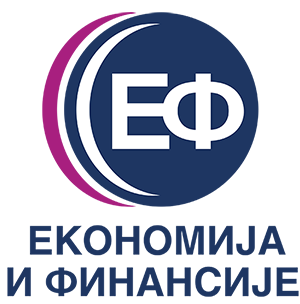
Applied Economics and Finances
- ECTS after 1 year: 60
- Study duration: 1 year, 2 semesters
- Professional title: Master economist
1st Year
- Modern business finance+
-
Number of ECTS: 8
Subject content:
Theoretical teachings: Development and origin, goals and importance of business finance; The concept, significance and application of the concept of time value of money; Financial analysis, cash flow analysis; Financial planning, methods and significance; Working capital management, general principles, money, receivables and inventory management; The concept of capital investments and methods for evaluation of investment projects; The concept of risk and return and their interdependence; Sources and rules of financing; Price and capital structure; Operational and financial leverage; Sources of value creation of a company.
Practical teachings: Discussion of previously presented topics, case studies, examples from practice; Application of methods and techniques of financial analysis and planning, evaluation of capital investments, long-term and short-term financing, creation of optimal capital structure and other important aspects of modern business finance; Study research; Seminary academic paper.
+
- Method and organization of scientific and research paper+
-
Number of ECTS: 8
Subject content:
Theoretical teachings: Science and methodology; Basic characteristics of the scientific method; Technology of scientific research work; Subject and problem of research; Objectives and hypotheses of research; Scientific methods of research; Structure of scientific work; Methodology of development of scientific research project; Organization of project management; The conceptual idea of a scientific research project.
Practical teachings: Exercises in solving problems describing the SRP methodology; Case Studies; Group discussions; Study research; Academic paper.
+
- Innovation management+
-
Number of ECTS: 7
Subject content:
Theoretical teachings: Innovation theory. Typology of innovation. Innovation and change; Innovation and development of products, services, processes, technology, organization, marketing; Business model innovations, innovation as management and engineering process; Innovation and entrepreneurship. Relationship between innovation and research and development activities; Innovative organization (types, characteristics, organizational structure and organizational culture); Innovation strategy and innovation chain; Basics of innovation project management. Risk and network of roles in the innovation process; Idea management (creativity and idea generation, idea sources, management and evaluation); Models of innovation processes from idea to realization. Linear-sequential models. Integrative models; Innovation systems. National Innovation System; Innovation infrastructure: special, innovation centers, business incubators, clusters and networks; Measuring innovation. Attributes of innovation, adoptability and approachability; Innovation performance and innovation indicators; European Union innovation policy and CIS methodology; Intellectual property in innovation management (invention law - patents as an invention protection mechanism, industrial design, trademarks and service marks-brands; protection of service innovations.
Practical teachings: Development and application of expert systems and systems based on knowledge in innovation management, use of selected modules of ERP systems and business intelligence software (systematic management of ideas, development of new products, portfolio management, etc.); Case Studies; Application of business software; Group discussions; Study research; Seminary work.
+
PART 1 (of 2 students choose 1)
- Business performance analysis+
-
Number of ECTS: 7
Subject content:
Theoretical teachings: Company in a modern business environment (essence, characteristics and changes); Company management and accounting-information technology support; Theoretical and methodological basis of company performance; Company performance measure system; Traditional performance measures of the company; Contemporary enterprise performance measures; Designing and managing a select portfolio of enterprise performance measures.
Practical teachings: Exercises; Case studies, Business software application; Group discussions; study research paper; academic paper
+
- Investment management+
-
Number of ECTS: 7
Subject content:
Theoretical teachings: Economic development and investment; Enterprise development and investment; Changes in the field of planning and investments; Investment process management; Preparation and evaluation of an investment study; Development of investment program; Investment project management; Preliminary design of a practical investment; Analysis and assessment of the justification of the investment project; Assessment of social justification of investments; Execution of investment projects; Micro and macro aspect of investment management.
Practical teachings: Practical managerial skills in the field of business consulting. Case Studies; Application of business software; Group discussions; Study research; Seminary academic paper.
+
- International finances+
-
Number of ECTS: 6
+
PART 2 (of 2 students choose 1)
- Entrepreneurial management+
-
Number of ECTS: 6
Subject content:
Theoretical teachings: Entrepreneurship (concept and development of entrepreneurship, types of entrepreneurship, the importance of entrepreneurship); Entrepreneurship in the 21st century - factors of entrepreneurship development; Entrepreneur (concept, characteristics and behavior of entrepreneurs); Creativity development; Innovation - the basic instrument of entrepreneurship; Entrepreneurial process (characteristics, models, elements); Initiating entrepreneurial investment (idea, idea development, business plan, idea implementation); Entrepreneurial strategies; Business growth management; Exit strategies; Corporate entrepreneurship; Ethics, social responsibility and entrepreneurship.
Practical teachings: Practical managerial skills in the field of business consulting. Case Studies; Application of business software; Group discussions; Study research; Seminary academic paper.
+
- Business consulting+
-
Number of ECTS: 7
Subject content:
Theoretical teachings: The nature and importance of business consulting; History and development trends of business consulting; Business consulting offer structure; Factors in the development of business consulting; Organization of consulting activities; Analysis of the offer of business consulting for small and medium enterprises; Analysis of the demand for consulting services in the Serbian economy; Criteria for selecting a business consultant; The role of consulting in creating the preconditions for successful transformation; Evaluation consulting capital values and privatization of enterprises; Consulting in certain dimensions of company restructuring; Differentiation of consulting activities; Theoretical assumptions for assessing the impact of consulting services on company performance.
Practical teachings: Practical managerial skills in the field of business consulting. Case Studies; Application of business software; Group discussions; Study research; Seminary academic paper.
+
- Professional practice
- Number of ECTS: 3
Subject content:
- It means spending time and working in companies, institutions and organizations where different activities are performed. The choice of a topic unit and a business enterprise or other organization is carried out in consultation with the subject professor. During practice, students must keep a diary in which they will enter a description of the jobs they perform, conclusions and observations. Studying internal and external factors that affect business success and management of company income.
- Study research paper
- Number of ECTS: 3
Subject content:
Theoretical classes:
- Consulting with a mentor on the choice of topic and basic literature.
- Independently finding additional sources of information and studying them.
- Consulting with a mentor to resolve any concerns and better understand the problem.
- Study of basic literature.
- Analysis of the situation in the studied area.
- Creating a work structure.
- Plan of activities during the research.
- Collection of literature
- Formulation of a research hypothesis.
- Comparison with the results of other authors.
- Drawing conclusions.
- Final - master thesis
- Number of ECTS: 8
Subject content:
- The final work is a research work of the student in which he gets acquainted with the organization and methodology of research in the field of economics and finance at the level of master studies. After the research, the student prepares the final paper in the form that contains the following chapters: Introduction, Research goal, Methodology, Starting hypotheses, Questions for processing, Example, Evaluation of results and discussion, Conclusion and Review of literature. The content of the given organization includes one of the topics that belongs to the main competence of the Faculty, which was covered in the teaching of the current study program. After completing the work, the candidate explains the content and results of the work with a commission evaluation and defense.
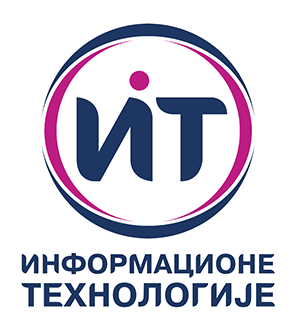
Information technologies
- ECTS after 1 year: 60
- Study duration: 1 year, 2 semesters
- Professional title: Master Engineer of Information Technology
1st Year
- Methods and organization of scientific research
- Number of ECTS: 6
Subject content:
Theoretical teaching:
- Methodological principles.
- Phases of scientific research.
- Basis of research methods.
- Design and implementation of scientific research.
- The structure of the research project.
- Logical base of methodology.
- Draft proposals of research projects.
- Methodology of scientific research projects.
- Scientific research methods and techniques of modeling and simulation.
- Management of scientific research projects.
- Communication in scientific research projects.
- Analysis of results and conclusions.
- Preparation of reports and research.
- Valorization of research results and publishing the results of scientific work.
Practical teaching:
- Exercises in solving problem describing the methodology of scientific research. Practical work in solving scientific tasks.
- Business Systems Analysis and Design
- Number of ECTS: 6
Subject content:
- Introduction to business analysis.
- Basic concepts of business analysis.
- Definition of the vision and scope of the project.
- The roles of the participants in the project business analysis.
- Techniques of collecting requirements.
- Analysis techniques.
- Categorization of requirements.
- Key components of requirements.
- Defining the business architecture.
- Risk management.
- Data modeling.
- Business processes modeling.
- Defining business rules.
- "AS-IS" and "TO-BE" analysis.
- Measuring system performance. Verification and validation of requirements. Managing changes of requirements.
- Case study: mentoring students in the development of the project.
- Advanced Software Technologies
- Number of ECTS: 6
Subject content:
Theoretical lessons
- Overview of advanced software technologies.
- The realization of multi-tier applications using advanced software technology.
- Implementation of user interface using modern software technologies.
- The realization of application logic using modern Software technology.
- Modern software technology for data access.
- Modern software technologies for integrating software systems.
- Software tools for development, testing and evaluation of the quality of a software system.
- Development of complex applications using modern software technologies.
Testing and evaluation of the quality of software applications.
Practical lessons
- Exercises, Project Task, Working with students on developing the logical structure of seminar paper, Process of creating seminar papers with examples.
- E-business Planning and Implementation
- Number of ECTS: 6
Subject content:
Theoretical lessons
- Introduction to e-business
- Information Technology Planning, function and support electronic business
- Models of electronic business
- Standards and protocols in electronic business
- The software platform for the implementation of e-business
- E-commerce
- Electronic banking
- Electronic Health
- Electronic education
- Security in Electronic Business
- Algorithms for encryption
- Digital Signature
- Protection of intellectual property rights and other legal aspects
- Promotion of e-business
- Review of future development
Practicallessons
- Practice accompanies lectures and presentations in order to introduce students to the conceptual design of e-business with practical examples.
Internet technologies / elective subject 1 (students choose 1 of 2)
- Distributed Systems and Applications
- Number of ECTS: 6
Subject content:
Theoretical lessons
- Information infrastructure,
- Concepts of distributed systems - paralel and distributed systems,
- Distributed system models,
- Distributed programing and applications - linking а set of processes,
- Mutual exclusion - problem specification,
- Multithreaded programming,
- Computer network protocols,
- Network programming - search for the shortest path in a network,
- Component programming, tools and methods of implementation,
- Message ordering - messages to the management relations,
- Synchronization, harmonisation and consistency,
- Resistance cancellation and security,
- Data exchange and communication between various parts of distributed applications and transparency in a system
Practical lessons
- Creating and defining a joint project in accordance with the teaching material. Group and individual work on agiven project.
- Integration of Software Technologies and Application
- Number of ECTS: 6
Subject content:
Theoretical lessons
- Integrated Architecture system.
- Description of the technology DCOM, CORBA, RMI and their application
- Network programming, serviceswith messages and rows.
- Metadata, data presentation and coding.
- XML, DTD, XML schema, parsing XML documents.
- XSL, XSLT and Xpath technologies, data transformation, processing data and information.
- Samples of design: MVC, observer, singleton, factory.
- Interfaces and inheritance.
- Scripting languages and their possible role, the use of scripting languages.
- A variety of security technologies and their characteristics.
- Certificate of system resources and services.
- Data protection in the communication between systems and services.
- History of programming languages, programming paradigms.
- The effects of scaling, the virtual machines.
- Compiled and interpreted languages. Applications and scripting languages
Practical lessons
- Mentoring students in the development of projects
Internet technologies / elective subject 2 (students choose 1 of 2)
- Modern Web-Development
- Number of ECTS: 6
Subject content:
Theoretical lessons
- Advanced HTML5 elements
- Advanced CSS3 elements
- Advanced JavaScript elements
- Advanced PHP language techniques.
- Cookies and Sessions.
- Connecting to the database.
- An example of PHP application that communicates with the database using the MVC model.
- AJAXtechnology.
- An example of complete commercial application implemented using learned technologies.
Practical lessons
- Practice accompanies lectures and introduces students to the conceptual design of modern web development.
- Software Mesuring and Testing
- Number of ECTS: 6
Subject content:
Theoretical lessons
- Introduction to testing, measurement and quality management,
- Basic and advanced techniques and principles of software testing and measurement,
- Testing methodologies,
- Techniques of measurement and prediction of software quality,
- Planning measurements in order to improve the quality of software,
- Design of the testing process with the application of software measurement to make decisions on the project,
- Selection and use of tools for software testing,
- Test and measurement metrics,
- Management of testing processes,
- Testing procedures of collecting measurement object attributes, their storage, analysis and processing,
- Integration, performance and regressive testing,
- System testing,
- Reporting during the software development cycle
Practical lessons
- Practice accompanies lectures and introducesstudents to the design of tests as well as ways of testing in modern software development environments.
Digital marketing / elective subject 1 (students choose 1 of 2)
- Internet marketing and social media
- Number of ECTS: 6
Subject content:
Theoretical study
- The context of e-marketing and performance indicators, elements of e-marketing, research e-market - metric of knowledge management, consumer behavior on the Internet - cultural, technological and social context, segmentation, targeting, differentiation and online positioning, Internet distribution - online distribution of intermediaries, sponsorship of content, indirect models, distribution channels, functions, indicators and management, E-marketing communication tools, integrated marketing communications, trends and types of internet advertising, social media strategy, customer service and support through social media, inclusion of social media in e-marketing plan, Purchase of a digital media space – browsers as reputation aggregators, advertising on social media, mobile advertising
Practical teaching
- Practice accompanies lectures and presentations including various examples of e-marketing from real life that are created by various companies around the world
- Business Strategy and Analysis of the Impact of
Digital Marketing
- Number of ECTS: 6
Subject content:
Theoretical classes:
- Introduction to Business Marketing Strategy, How to set up a business marketing strategy, key components of digital strategy (digital marketing, online security, cloud computing), Plan of differentiation and branding, Evaluation and competition analysis, Process of creating a strategic plan of digital marketing, e-mail campaigns, social media, feed-services, International Marketing Research, Communication, Advertising and Media planning, The latest trends in digital marketing, web marketing and web project management, mobile marketing strategy, Web Strategy and business models, Google map integration, integrated online / offline marketing activities, results and feedback.
Practical teaching:
- Using examples of the best practices and developing a plan that will enable success in business.
Digital marketing / elective subject 2 (students choose 1 of 2)
- Modern public relations and political Digital Marketing
- Number of ECTS: 6
Subject content:
Theoretical study
- What are the public relations and their evolution
- Process PR: research, program planning, communication, evaluation
- Public opinion and persuasion
- Conflicts: how to react in crisis situations
- Legal and ethical questions in PR: Code of Conduct
- PR tactics and PR action plan
- Global application of PR: corporations, politics and government, non-profit organizations
- Models PR and political marketing
- Planning and political digital marketing
- Model of mobile advertising
- Case studies from around the world
Practical teaching
- Practice accompanies lectures and presentations to introduce students to the practical application of modern PR technology and mobile advertising.
- Digital branding
- Number of ECTS: 6
Subject content:
Theoretical teaching
- The context of digital branding and performance indicators
- Elements of Digital Branding
- Consistency in the content shown to the audience on the Internet
- The positioning of the brand in the digital age
- Online segmentation for purposes of branding
- Understand the basis of the website that supports the brand
- The inclusion of target groups
- Basic software technology necessary for a strong brand presence on the Internet
- Functionality of websites
- The emotional impact of branded Web presentation
- Case studies
Practical teaching
- Practice accompanies lectures introducing students to the practical application of digital marketing.
- Business process optimization and modeling
- Number of ECTS: 6
Subject content:
Theoretical lessons
- The place and role of functions of Information systems and technologies in modeling and optimization of business process.
- The concept and definition of the organizational change, typology of organizational changes.
- Business process reengineering and organizational transformation, organizational transformation methods (Adizes method).
- Methods and implementation of organizational changes (Kurt-Lewin model)
- Stages of implementation of information systems and application of methods and tools
- Specifics of ERP implementation.
- Changes in the organization during the introduction of information systems and continuous optimization of key business processes.
Practical lessons
- Recognizing the importance of strategic relations of top management towards function of information systems and technologies.
- Identification and classification of organizational changes and their impact
- The modeling and optimization of the function of synchronizing business processes and information systems.
- Methods of implementation of reengineering.
- Professional practice
- Number of ECTS: 4
Subject content:
- The importance of professional practice (internship) and selection of companies, whose activities cover digital marketing and internet technology, where will be carried out practical work of students; Creative tutoring (high level of interaction between a candidate and tutor). The elements of the project task (the definition of the project task, and plan of the realization professional practice); Defining goals and objectives of the research; Identification and description of the basic problems by developing key thesis; Basic methods, techniques and instruments for the realization of professional practices - selection of appropriate methods for project task and anticipated empirical research; Basic elements of the presentation of research results.
- Study research work
- Number of ECTS: 4
Subject content:
Theoretical classes:
- Analysis of the situation in the field that is being studied
- Development of paper structure
- Plan of activities during the research
- Collecting Required literature
- Formulating research hypotheses
- Comparison with the results of other authors
- Drawing conclusions
- Selecting a theme of final paper
- Writing of Master Thesis
- Master's Thesis
- Number of ECTS: 4
Subject content:
- Writing and defending the master thesis makes students trained in scientific field which is the subject of their master academic studies; they acquire the title of graduate engineer in the field of master academic studies.
- Graduate engineer - master has wide academic theoretical and practical knowledge and skills in selected scientific field, he's familiar with the methodology for solving complex problems accepted in academic environment and he is able to use them independently and creatively in solving problems that will occur in practice.


